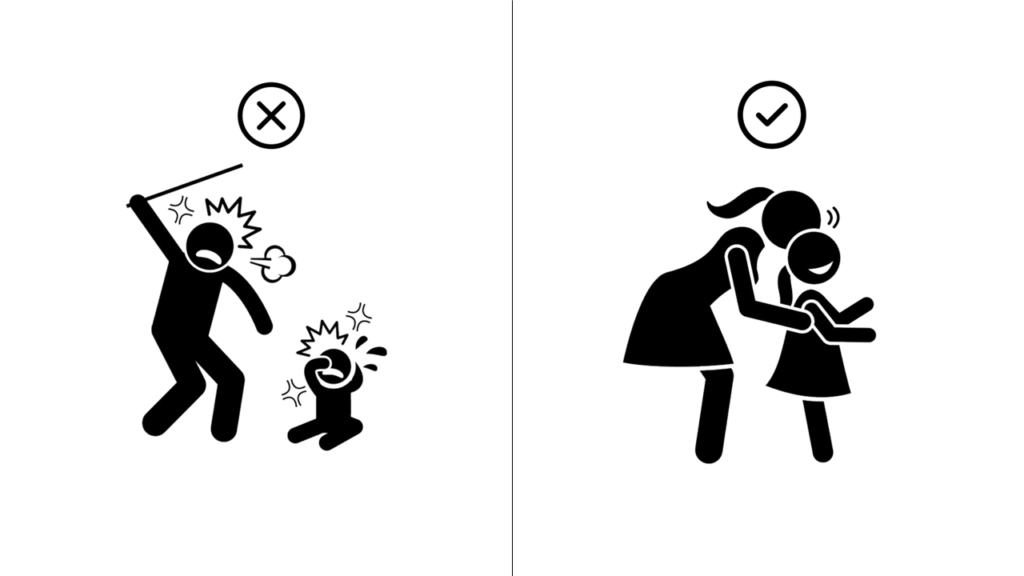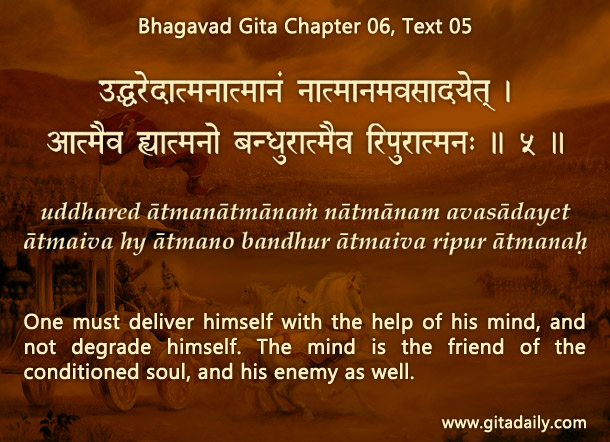
Suppose a parent and child were walking together, and the child slipped and fell. Naturally, the parent would help the child up and encourage them to start walking again. If instead, we saw a parent yelling at the child for falling and even raising their hand to hit them, we would find such behavior appalling, even abusive. Similarly, if an adult child allowed such mistreatment without standing up for themselves, we would question their passivity.
This dynamic mirrors the interaction within us between our higher and lower selves. Our higher self is meant to be wise and guiding, like a responsible parent, while our lower self often acts impulsively, like a child. However, the higher self can sometimes become overly judgmental and aggressive, while the lower self can become destructively passive or self-deprecating.
The Bhagavad-Gita (6.5) encourages us to elevate ourselves with ourselves, ensuring that this internal relationship is uplifting and not degrading. This means the higher self should not become destructively critical, and the lower self should not succumb to self-destructive passivity.
Mistakes and lapses are inevitable because we are fallible human beings. When these occur, our inner dynamic should foster learning and growth, not chronic self-condemnation. While it’s important to be firm with ourselves when we’ve been careless, such firmness should help us rise, not leave us feeling hopeless and stuck. If our inner dialogue is overly harsh or discouraging, we need to reform this relationship.
Reforming our inner dynamic involves creating an internal environment of encouragement and positivity rather than constant negativity and chastisement.
Summary:
- The relationship between our higher and lower selves should elevate us, not degrade us. The higher self should not be destructively critical, and the lower self should not be destructively passive.
- After mistakes or failures, our inner dialogue should encourage learning and growth rather than chronically condemning ourselves.
- Reforming our inner relationship involves fostering positivity and encouragement to help us rise after setbacks.
Think it over:
- Reflect on a time when your inner dialogue was overly harsh after a mistake. What emotions did it evoke?
- Recall an incident when your relationship with yourself felt toxic. How can you reform this dynamic to foster positivity and encouragement?
- Consider steps you can take to cultivate a more supportive and uplifting relationship with yourself.
***
06.05 One must deliver himself with the help of his mind, and not degrade himself. The mind is the friend of the conditioned soul, and his enemy as well.


Leave A Comment